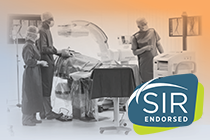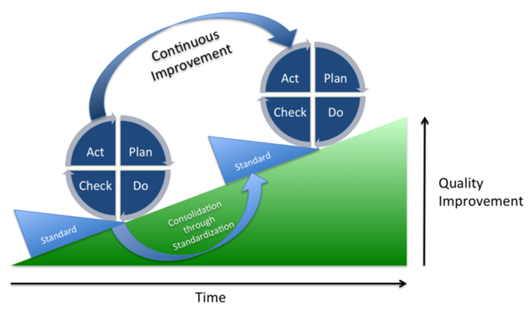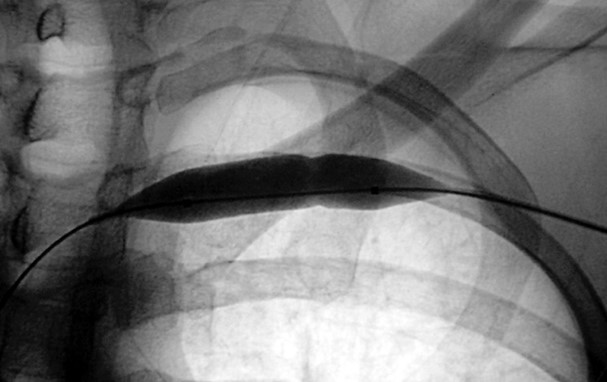
1. RISQCS 2021 Quality Improvement Project Abstract Submission
 Abstract submissions!
Abstract submissions!
You are cordially invited to submit an abstract to the RISQCS 2021 Quality Assurance and Quality Improvement Resident and Medical Student Session. Abstracts may be submitted for consideration as electronic or oral presentations.
Abstracts in the RISQCS Quality Improvement Project Session (QIPS) must represent projects that were conducted by medical students or interventional radiology residents within a clinical training environment. These should specifically speak to Quality in periprocedural care, resource stewardship, or any domain relevant to patient safety. Abstracts ought to clearly and succinctly represent the Quality Improvement Project and its realized or anticipated impact on the quality of care rendered within the practice of Interventional Radiology.
Guidelines for Submission of a Top RISQCS Abstract!
The following information is required for submitted abstracts to QIPS. Kindly email the following information to [email protected]
1. Author information: Please provide the address and contact information for the resident or student lead author and the project advisor(s). Project advisors must include at least one interventional radiology attending. For each co-author, please provide the following:
- First and Last Name
- Institution, City, State, Country
- Email address
2. Topic area: Cite the relevant Quality Improvement clinical or procedural domain.
3. Abstract: Summarize the abstract and how the topic is relevant and important to the IR community
- Abstract text: Kindly limit to 250 words
- Presentation type: Electronic poster, or oral presentation
- Keywords: Up to three keywords may be provided.
- Title: Summarize the ethos of the abstract succinctly but descriptively.
- Clinical Relevance: Outline the objective of the project and how it addresses a topic of importance to the field of IR.
- Authorship: List the team of contributors to the project including lead and senior author(s).
- Introduction: Outline the question that the project aims to address. Provide a summative review of the knowns and unknowns related to the problem being addressed and how your project promises to fill this gap. The closing sentence should describe clearly the objective of the project and the intended improvement target.
- Methodology: Please define the following a.) Quality Improvement metrics utilized to assess the QI intervention; b.) Clinical, technical or periprocedural modifications implemented and the basis for why the aforementioned changes are anticipated to reliably address the targeted QI issue; b.) overview of the iterative cycles of change supporting the intervention; c.) analysis employed to evaluate the outcomes and impact of the project’s intervention.
- Results and Outcomes: Provide a synopsis of the metrics attained and achieved outcomes.
- Conclusion: Describe succinctly what may be concluded from the outcomes of your project. This should be supported by the data outlined in the abstract. State the implications of the outcomes of the project. Cite limitations and future work.
2. RISQCS 2021 Resident and Medical Student Case-Based Complications Competition
Got (Instructive!) COMPLICATIONS?
Submit an unknown case for our RISQCS 2021 Resident and Medical Student Case-Based Complications Competition! The 3 winning finalists will receive complimentary registration to the RISQCS 2022 Global IR Resident and Medical Student Bootcamp and to RISQCS 2021.
Deadline for submission: Wednesday, July 7th, 2021
Rules of Engagement:
1. Submit an anonymous teaching case (complication vs clinical conundrum) for consideration in a simple PowerPoint format with the following 6 items represented:
- Title slide (Name, Institution, Case Mentor, Contact information)
- Introductory Case Summary
- Case course and outcome
- 3-5 significant representative deidentified images on black background
- 3 multiple choice questions and answer
- Learning/take home points
2. All cases proposals should be emailed to [email protected] with the heading “RISQCS 2020 Resident and Medical Student Case-Based Competition.”
3. RISQCS 2021 Global IR Resident and Medical Student Bootcamp (On-site, in Boston): The VENOUS Village

Overview: This 1-day non-CME IR Resident and Medical Student Bootcamp (Clinical-Technical Knowledge and Skill-building Practicum) centered on Venous Disease Diagnosis and Endovascular Management is the seminal educational event designed exclusively for IR-bound medical students and IR residents. The RISQCS IR bootcamp experience has two overarching educational goals which are to:
I. reduce the universal risk to patients naturally inherent to the traditional educational
practice of learning IR through patient-centered procedural trial and error
II. flatten the learning curve to gaining technical and cognitive mastery in providing safe
and effective minimally invasive vascular and nonvascular care
To accomplish this, our objective is to provide trainees with critical knowledge and skills requisite for a proficient IR practice grounded in Quality, Safety, Risk-Management and Clinical Mastery, namely:
a) Cognitive Knowledge
b) Clinical decision-making skills
c) Technical knowledge
d) Technical skill
The following objectives will be supported by case-based didactics, highlighting Quality and Safety pearls and pitfalls, practice building workshops, hands-on device practicums, and IR-case-based team challenges.
Bootcamp Learning Objectives:
At the end of this program, attendees will be able to:
- Learn how to perform basic to advanced venous procedures using practical venous endovascular tools and devices
- Recall the key safety features and practical nuances of requisite IR tools and devices specific to a venous endovascular practice
- Recognize subject fundamentals of risk management to the interventional radiologist-in-training
- Demonstrate objective review of de-identified case-based complications, adverse events, and controversial clinical conundrums relevant to venous disease diagnosis and management
- Identify important learning opportunities and key decision-making points defining didactic venous endovascular clinical challenges and complications

 Facebook
Facebook X
X LinkedIn
LinkedIn Forward
Forward